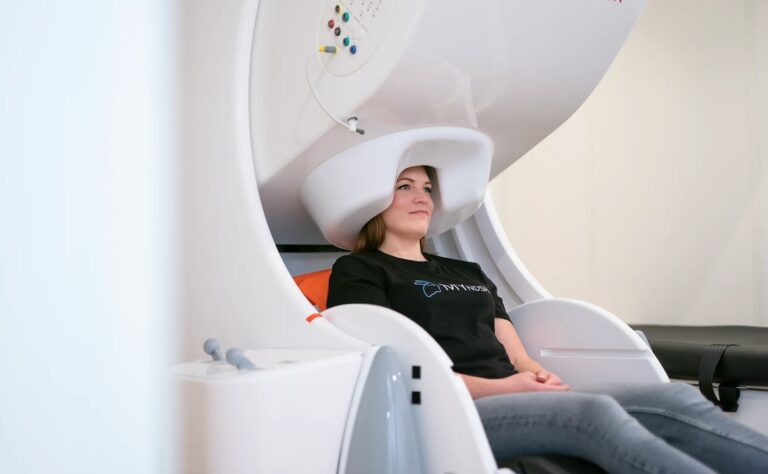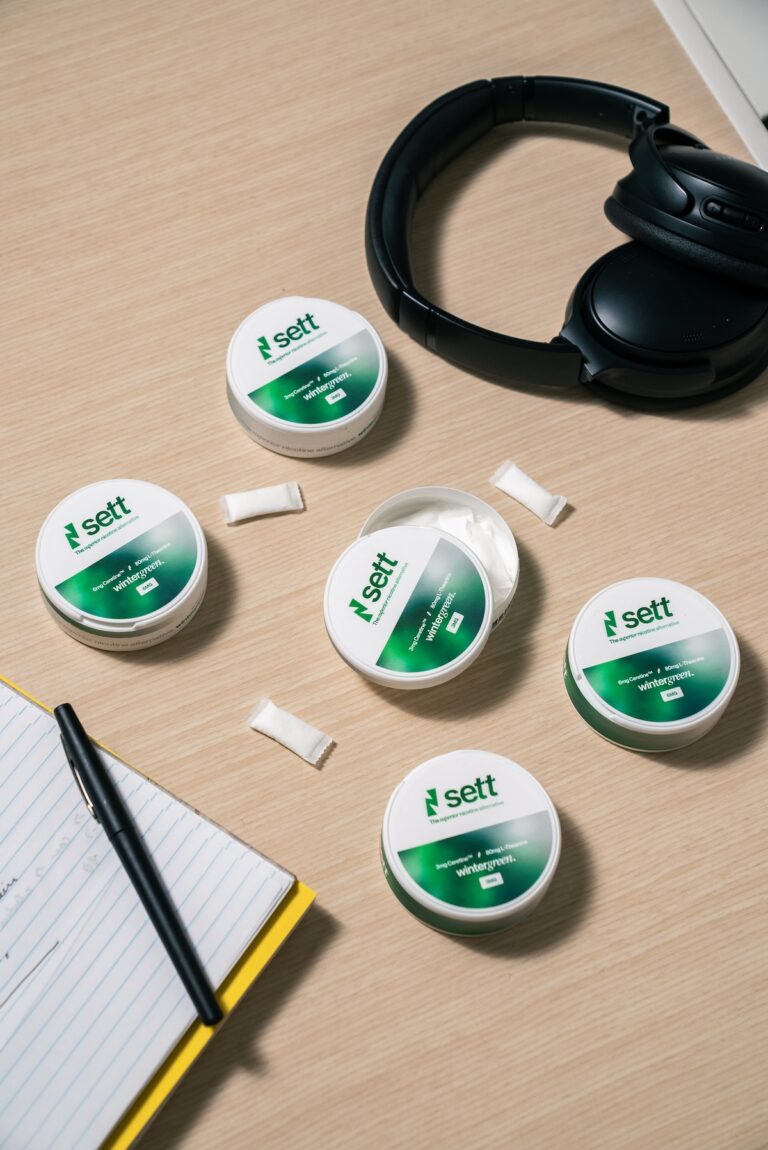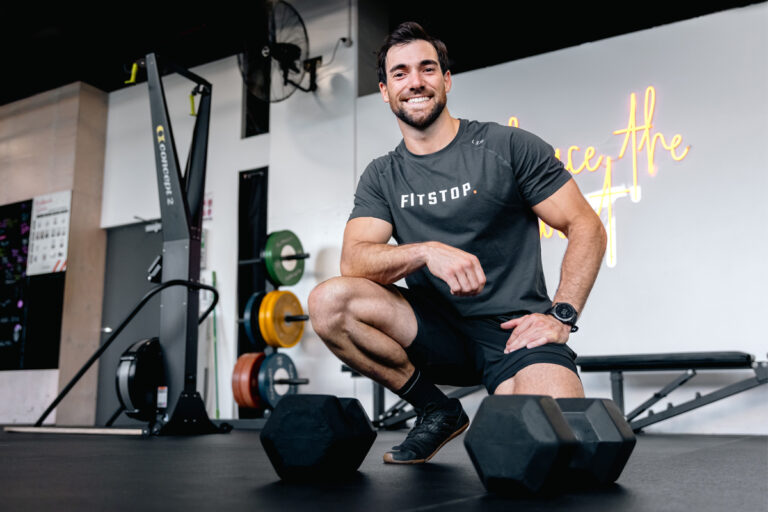In this Q&A, you’ll hear from Sam Jactel, founder & CEO of Ayble Health, a digital health platform providing comprehensive care for GI disorders. Sam discusses how a drawn-out battle with IBD led him to create a tech-powered ecosystem that elevates the standard of care by personalizing dietary and psychological interventions.
Can you tell us about what you’re working on at Ayble Health?
Sam Jactel: Ayble Health is a comprehensive ecosystem of support beyond medication for those suffering from gastrointestinal disorders.
We combine the largest GI behavioral health database in the world with proprietary machine learning algorithms to build personalized, predictive care programs spanning dietary and psychological interventions — all with the human touch of a licensed care team.
At Ayble, we understand one size truly fits none, and with our personalized programming, we’re able to break the frustration cycle and help patients regain control over their condition.
How did you come up with the idea? What key insight led you to pursue this opportunity?
SJ: In 2014, I was diagnosed with a form of inflammatory bowel disease (IBD). For the better part of a decade since then, I’ve struggled to manage my condition and gone through a frustrating cycle of feeling better, then feeling worse, despite having access to (and being able to afford) great clinical care.
I’m not alone in this experience. One in four Americans (approximately 70M+ people) have a diagnosed GI issue, and millions more suffer in silence.
It takes, on average, five years of trial and error to find the right treatment program for patients to get into remission (per the Crohn’s & Colitis Foundation). Even with the gold-standard approach to care, less than half of patients ever attain full control over their symptoms.
GI disorders like irritable bowel syndrome (IBS) and IBD are incredibly complex to treat and, for many patients like me, medication alone may not be enough to manage our symptoms.
As patients, we’re often told to change our diet or find mental health support in order to relieve symptoms and keep us symptom-free for longer.
Clinicians encourage taking medication, regimenting our diet, and addressing the mind-gut connection, but the best I ever received was a pamphlet and instructions to “go figure it out” on my own.
Frustrated, I decided to do something about it. Ayble Health is the tool I wished had existed when I was diagnosed.
How did you turn your idea into a company?
SJ: I’d say Ayble Health’s start was slightly unorthodox. While dealing with my fifth flare a couple of years ago, I built a simple, but surprisingly effective, low-tech tool to help me identify foods that were causing me to feel unwell. I shared it with a community of other patients I was connected with, and they found it was just as effective as I had.
Here’s where the story gets somewhat different from many “startup inception” sagas… Instead of taking the opportunity to build something low-/no-code and launch as soon as possible, we undertook a large-scale formal clinical study before commercial launch.
We didn’t take a single dollar from anyone before we had published evidence (in a clinical gastroenterology journal) that our tool meaningfully improved symptoms for IBS and IBD patients.
Now, emerging from stealth and armed with clinical validation and the support from incredible investors, we couldn’t be more excited to watch the growing impact we’re having on patients every day.
How big can this get? What’s the addressable market and how do you go about capturing it?
SJ: GI patients represent a huge portion of the population. Patients like me are incredibly sick, and the condition is stigmatized, which means the statistics are underreported.
Here are some statistics:
- One in four Americans live with a diagnosed GI issue — twice as many as those that have diabetes in the US.
- On aggregate, patients like me cost the US healthcare system $140B — more than mental health, trauma, and heart disease.
- Despite the need, only a handful of companies focus on the GI population, compared to dozens in the diabetes space.
There’s also a staggering mismatch between supply and demand in the GI space. We’re projecting a shortage of 1.6K–2K gastroenterologists by 2025, all while diagnosis rates are increasing across all populations.
This translates to extremely long appointment wait times (on average, over six months) and high out-of-pocket costs for patients like me. These stats are even worse when you look for GI-specialized dietitians or psychologists.
Ayble, meanwhile, has clinical evidence to support the care of IBS, IBD, and undiagnosed patients with chronic symptoms. By connecting with patients, providers, employers, and insurers alike, we can begin to truly capture this market at various touch points without disintermediating clinicians.
Creating a resource for patients that extends care beyond the four walls of a clinic is a challenging and exciting undertaking — but even more importantly, it’s a necessary step for the growing population of people who need support now.
Who is the core customer? How are you acquiring customers? And how will you grow the customer base?
Ayble Health is designed for people with diagnosed and undiagnosed chronic GI symptoms, with personalized programming to guide them to symptom management through dietary and psychological tools.
We are currently available in 37 states across the US, but our vision is to expand into every corner of the country, then the world, serving as an outlet for those struggling with their conditions and looking to improve their standard of care and quality of life.
As patients ourselves, we know that getting dietary and psychological support directly to the customer is incredibly valuable, so that’s where we’re starting. Through our website or subscription model, it’s significantly cheaper than working with a dietitian or psychologist out of pocket.
On the topic of growth, we’re expanding our customer base by selling to employers and insurers, which will help take the financial burden off of patients and manage claims cost/claims volume at a massive scale.
We also offer our platform to clinicians as a complementary tool in their arsenal to manage patients’ symptoms.
Looking at your road map, what are some of the milestones you’re targeting over the next 3-6 months?
Our vision for Ayble Health is not to simply digitize the current standard of care. Through our groundbreaking clinical research and partnerships, we’re demonstrating how we can build a new gold standard of care — one that’s personalized, pragmatic, and predictive rather than one-size-fits-all and reactive.
In 2023 and beyond, we will continue to iterate on our technology to improve patient recommendations, develop new features like our dedicated psychology program (launching later this year), and add more clinicians, nutritionists, and psychologists to our network in order to curate the most impactful and comprehensive ecosystem of support beyond the pill.
Anything else you’d like to share with readers?
The future of healthcare is patient-driven, not simply patient-centered. In order to radically change the standard of care and improve upon the systems currently in place, you need a deep understanding of what we, as patients, truly need, rather than what our system expects us to need.
We believe we can provide that.
Related content from Fitt Insider:
Issue No. 220: Gut Care
Issue No. 129: Gut Check
If you’re interested in having your company featured in our Startup Q&A series, send an email to team@fitt.co.






